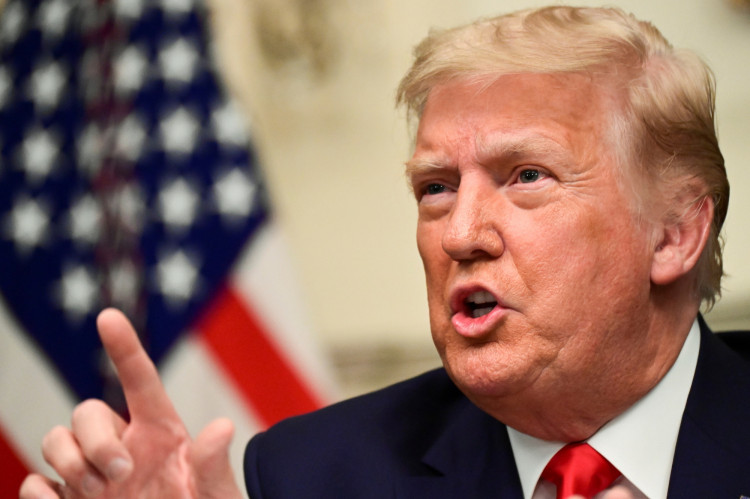In a New York courtroom, the legal fate of former President Donald Trump's business dealings took a dramatic turn as he offered testimony in a fraud trial led by New York Attorney General Letitia James' office. The day was punctuated by a series of contentious exchanges between Trump and New York Judge Arthur Engoron, revealing the tension underlying the high-stakes legal battle over alleged fraudulent practices within the Trump Organization.
Trump, with characteristic defiance, stood firmly by his property valuations which are central to the trial, rejecting claims of impropriety. "The numbers of my net worth are substantially more than the number you have in the financial statement," Trump asserted, challenging the foundations of the state's case.
The courtroom atmosphere charged with conflict, witnessed Trump in frequent divergence from direct questioning, prompting Judge Engoron to issue stern admonitions. Engoron, presiding over the bench trial, expressed his exasperation openly, clashing with Trump's expansive responses and warning of drawing negative inferences from the evasive testimony. "We got another speech. I beseech you to control him if you can. If you can't, I will," Engoron directed toward Trump's counsel, signaling his willingness to take control of the proceedings.
Trump's legal team, led by attorney Christopher Kise, requested leniency from the judge to allow Trump to answer in his own manner, a move that incited a mixture of reactions in the courtroom. This legal sparring unfolded under the watchful eyes of James, whom Trump labeled as "a political hack," and against the backdrop of a $250 million lawsuit. The state accuses Trump, his sons, and executives of inflating asset values for better loan and insurance terms-allegations they deny and attribute to political bias.
The case, bereft of the transparency that television cameras might have provided, was nonetheless closely observed by reporters, including a team from CBS News, capturing every twist and turn of Trump's testimony.
Outside the courtroom, James held firm to the conviction that numbers would speak louder than words, stating, "Numbers, my friend, don't lie." Inside, Trump's answers ranged from vehement denials to justifications of increased property values over time. He argued that his financial statements' disclaimers should shield him from the allegations, stating, "They always hold up in court, except maybe this court."
Engoron previously dismissed the disclaimer defense, prompting an acerbic retort from Trump, who contended that the judge had branded him a fraud without proper knowledge.
The drama escalated as Trump was probed about the organization's internal reporting structure and whether banks and insurers were expected to rely on his financial documents. During these moments, Trump veered into reflections on his properties' worth and even his political aspirations, only to be checked by Engoron's insistence on relevance.
The stakes of this trial extend beyond the courtroom, intertwining with Trump's political future as he eyes another run for the presidency. Despite the legal onslaught, Trump has remained a towering figure in American politics, his testimony an embodiment of the combative style that has come to define both his political and business personas. As the legal narrative unfolds, observers and participants alike are reminded that in this case, as in the court of public opinion, the final judgment is yet to be rendered.






